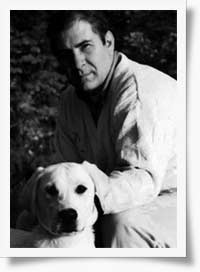 The first Mentor appeared in Homer’s epic poem, Odyssey. Composed near the end of the 8th century BC, Odyssey is the story of the king of Ithaca who struggles to find his way home after the Trojan War.
The first Mentor appeared in Homer’s epic poem, Odyssey. Composed near the end of the 8th century BC, Odyssey is the story of the king of Ithaca who struggles to find his way home after the Trojan War.
In the opening chapter, the goddess Athena disguises herself as Mentor, Odysseus most trusted friend. Mentor approaches Odysseus’ son, Telemachus, and encourages him to find his father. In the chapters that follow, Mentor provides guidance, encouragement, and support until Telemachus succeeds.
And so, from a story written nearly three thousand years ago, comes the modern concept and tradition of “mentors.” The word has evolved to mean a trusted advisor, friend, or teacher.
History provides many examples – including Socrates and Plato, Plato and Aristotle, Aristotle and Alexander, Ghandi and King, Emerson and Thoreau, Warren Buffett and Bill Gates, Steve Jobs and Mark Zuckerberg, Maya Angelou and Oprah Winfrey, among others – but mentoring relationships are not limited to those of note.
Each of us has a birthright of potential that can only be actualized with the help of mentors. Somebody has to believe in us before we can fully believe in ourselves.
In this regard, I have been more fortunate than most. I am humbled by the quality of my friends and mentors. Some I sought. Others found me and chose to invest in my growth and development.
Senator Frank E. Moss brought me to Washington. He sponsored me with a part-time job while I was in school and gave me my first job after I graduated. He defined integrity and commitment to public service.
Arthur Flemming served in President Eisenhower’s cabinet and had Presidential appointments from four other Presidents. During the last 20 years of his life, he had a standing reservation for lunch at Twigs, a restaurant near his office. He held court there, entertaining a revolving cast of regulars and a seemingly endless supply of new friends. He worked me into the rotation at least once a month. We talked politics. We talked religion. We talked about life.
Mother Teresa changed the trajectory of my life with a single meeting. Henri Landwirth, a holocaust survivor, taught me about love and forgiveness and the way our troubles often fashion us for better things. Hugh Jones taught me what it means to be true friend, becoming a brother in the process.
In similar fashion, Jane Goodall became a sister. I met Jane on her 62nd birthday. We were scheduled to talk for half an hour and wound up spending the day together, finishing that evening, sitting on the floor of her suite, sharing a bottle of scotch. I was in awe of her then and even more so now as I have watched her tireless and determined efforts to try heal and save the world.
Bob Macauley, the founder of AmeriCares was a fearless philanthropist who lived and acted on his values. I treasure the time spent with him in his library talking about the problems of the world. Seemingly, nothing was beyond his reach.
Fred Matser and Rachel Rossow – one in the Netherlands, the other in Connecticut – taught me, perhaps the most important lesson of all: There is no distance between souls.
But perhaps most significant in terms of my personal development was Viktor Frankl. Viktor was the author of 32 books, including Man’s Search for Meaning, identified by the Library of Congress as one of the ten most influential books in the English language.
After reading Man’s Search for Meaning, I sent Dr. Frankl a letter expressing my admiration. I told him I had stumbled on his book after an extensive period of soul-searching and that I wished I had found it earlier.
This book had a profound impact on me and I told him so. To my surprise, Dr. Frankl answered my letter with a personal note raising questions that encouraged a response. We exchanged letters several times after that before I found an opportunity to invite him to come to America to keynote a conference I was helping organize.
I met Viktor at the airport late one afternoon in l986 and peppered him with questions as we drove to town. I continued my questioning over dinner and then reluctantly said goodnight.
The next morning, Viktor gave a stirring and thought provoking speech, receiving a standing ovation from the three thousand people attending the conference. After lunch, I walked him back to his room and thanked him for making the long journey from Vienna for one speech. I said good-bye not knowing when, if ever, I would see him again.
Early the next morning, the phone rang at my home. When I answered, I heard Viktor’s voice. He said his return flight did not leave until late in the day and he was wondering if I would mind coming down and spending some time with him.
We spent the entire day together. Though nothing explicit was said, I could tell he was “working on me.” Viktor had clearly thought about the questions I had asked the day he arrived and was trying to extend my thinking. He probed and pushed with the gentle, thoughtful persistence of the good psychiatrist he was.
Afterwards, Viktor periodically sent me the text of something he was working on – a speech or an article – and asked what I thought. The question was always phrased as though he was seeking my opinion, but I came to know it was more than that. He was looking for a way to extend our dialogue.
In much the same manner, I came to expect a periodic phone call. The ones I liked best were the ones where he said he was going to be somewhere in the United States and wondering if I could I find time to join him. I jumped on every opportunity.
I could go on…The list of those who have benefited my life is long. Suffice it to say, there would be little left of me if I subtracted the contributions of others.





